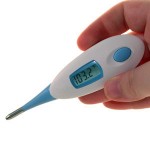Ocean Companies Safety Tip of the Week
DO YOU KNOW WHEN TO CALL IN SICK?
All employees are important at work and when people call in sick, we all have to shuffle around to pick up the slack. Many come to work when they are sick because they can’t afford a sick day. Staying home for a day or two may shorten the length of the illness. Staying warm and rested and drinking plenty of water and juice will help fight many illnesses. It is important to know we can handle you staying home for a brief time more than if you come in to work and get many people sick.
When you come to work sick, a cough or sneeze will spread germs even though you try your best to cover them with a sleeve. Germs are left on door knobs, key boards, telephones, cup boards, drawers, and the coffee pot. According to the CDC “people are not washing their hands often or well enough and may transmit up to 80% of all infections by their hands.”
 Fever, chills, sweats, and/or very achy: These are all things that say you are fighting off an infection and infections may or may not be contagious. The flu, or influenza, is contagious and can have all the symptoms mentioned, so don’t take a chance of sharing it with your co-workers. Stay home.
Fever, chills, sweats, and/or very achy: These are all things that say you are fighting off an infection and infections may or may not be contagious. The flu, or influenza, is contagious and can have all the symptoms mentioned, so don’t take a chance of sharing it with your co-workers. Stay home.
Stomach woes: If you have diarrhea or are vomiting, it may be food poisoning or a stomach virus that is very contagious.
 Severe sore throat: We’re not talking about a scratchy or mildly sore throat. We’re talking about feeling like you swallowed razor blades. It is especially important to stay away from work and go to the doctor if it includes a fever and swollen glands. A throat culture from the doctor will determine if it is strep throat or not. If it is, they will probably prescribe an antibiotic and tell you to wait at least 24 hours after taking the antibiotic before going back to work.
Severe sore throat: We’re not talking about a scratchy or mildly sore throat. We’re talking about feeling like you swallowed razor blades. It is especially important to stay away from work and go to the doctor if it includes a fever and swollen glands. A throat culture from the doctor will determine if it is strep throat or not. If it is, they will probably prescribe an antibiotic and tell you to wait at least 24 hours after taking the antibiotic before going back to work.
Pink eye (conjunctivitis): The eye is usually a pinkish or red color, may feel like it has sand in it and may be swollen. This is a highly contagious condition and you need to see the doctor. If it is pink eye, the doctor will more than likely have you use antibiotic eye drops for at least 24 hours before allowing you to come back to work.
Sinus or ear pain: If you have severe ear pain and difficulty hearing, it may be an ear infection. Sinus infections can cause pain around the eyes, cheek bones, forehead and even the top of your teeth. Another indicator of a sinus infection is green mucus. These are generally not contagious, but you should make a trip to the doctor for treatment. Chances are you will only miss one day for either of these.
 Severe headache: A typical head ache can usually be relieved with an over the counter pain reliever such as ibuprofen, acetaminophen, naproxen, or aspirin. There is no reason to miss work for this. However if your headache is so bad that you can’t tolerate noise or light, the pain or the pain is so bad it blurs your vision and/or become nauseated, you may have a migraine and shouldn’t be at work. You should talk to your doctor and have him assess the headache. There are many new options for your doctor to help you shorten the migraine or chronic headache’s duration and most work within an hour.
Severe headache: A typical head ache can usually be relieved with an over the counter pain reliever such as ibuprofen, acetaminophen, naproxen, or aspirin. There is no reason to miss work for this. However if your headache is so bad that you can’t tolerate noise or light, the pain or the pain is so bad it blurs your vision and/or become nauseated, you may have a migraine and shouldn’t be at work. You should talk to your doctor and have him assess the headache. There are many new options for your doctor to help you shorten the migraine or chronic headache’s duration and most work within an hour.
Remember, washing your hands often for at least 20 seconds in clean, warm running water with soap will help prevent many diseases, but if you do get sick enough to stay home, do it. You will probably feel better faster and your co-workers will appreciate it!
Sources: The Olympian, WebMD, about.com
– Cherie


